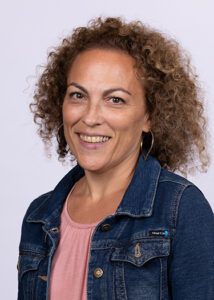
Redefining Failure to Reach Success
Many years back, when one of my feisty daughters was still in high school, she posed a serious question, which was kind of funny, kind of true, and has certainly stuck with me. “Why, Imma, is a 65 on a test considered failing? I mean you knew more than half the information! You should get credit for that.” It was kind of funny, and kind of true, and it has stuck with me. As a learning specialist in SAR High School’s Student Learning Center (SLC), her question pushed me to think a lot about failure, and I have realized that the concept of failure is not so simply defined within a school setting. There is the obvious definition: a grade. Yet failure is a mixture of so many ingredients. It also includes the student’s self-perception, social pressure, the expectations of parents and looming thoughts about college. It feels irrevocable and destructive. But I want to challenge you here to think about and embrace the growth that failure has to offer.
Working one on one with teenagers has been an incredible gift. My colleagues and I take students on a journey that spans anywhere from 2-4 years, helping them build their academic, cognitive and basic “being-a-person” skills, as well as their self-esteem, through the many assignments, assessments and subjects of their high school careers. I feel deep satisfaction in seeing these students progress, mature and move on to a place that was not a “sure thing” when they first crossed the threshold of our building on 259th Street. I, like all of my SLC colleagues, am emotionally tied to these students, who sit across from us anywhere from 3 to 5 times a week. As we share an 8-foot round table, we internalize all of their nuances – their gait as they walk in, their body language and facial expressions, their tone when they ask questions – which all become very familiar to us. Personal stories are shared, as are anger, frustration, excitement, satisfaction and success, and these qualities weave an intricate relationship between learning specialists and students. When the students’ four years are up, we feel some sense of almost parental pride as they receive their diplomas and waltz into the next phases of their lives.
Despite this repeated pattern, though, what I haven’t revealed to you is the failure. My failure. Their failure. And maybe our society’s failure. Even amidst the many successes, we experience many failures as well.
On a personal level, there have been times where I felt like I only earned a 65. It doesn’t feel good to admit this, but it’s true. There have been students I initially thought I could reach, but we just didn’t connect. There were students who were simply not interested in what I had to offer, and I could not break through their barriers. To be even more frank, there were students who frustrated me, and while I thought I didn’t show it, some of my emotions probably seeped out. I don’t feel great about any of this. And while I really tried to pass my test, I know that I did not deserve more than a 65.
But it is true that from failure we learn. I know that such failure has challenged my practice and forced me to be uncomfortable in my self-reflections. It has also taught me how to shift my perspective and approach, making me a better learning specialist in the process: more attentive, with a wider scope and greater patience, allowing me to put aside the pressure of grades and focus instead on the skills that will help these students become their best and most functional selves. They will get into college; that I know. It will happen even if they did badly on that chemistry test or wrote a terrible thesis statement for the Romeo and Juliet final essay. The next stage of their education will happen, but what they actually do with those presumed “failures” matters most.
I challenge my students, just as I challenge myself, to learn from these failures and to take risks even when it feels so scary and uncertain. My students in the SLC must take risks every day, learning new skills that are unfamiliar and seem like a gamble – whether those are learning to show up on time, starting an assignment, finishing it by the designated date, adapting to new study or test-taking skills or taking notes for a research paper; the list is endless. Reverting back to our familiar patterns is so easy, and we may not achieve our goals the first or second time. Our efforts can earn the equivalent of that feared 65. But any failure still means students learned something: about themselves and about the risks they are capable of taking. And when they try that risky skill for the third time, even if it needs to be tweaked, their failure will have taught them about perseverance.
I’d like to challenge us parents with the same notion. Let’s fail a little. Let’s take our children and our students through the path of failure. Let them try out for the soccer team or that difficult part in the play not knowing the outcome. Let them make dinner even though it might mess up the kitchen. Let them go on a Shabbaton without their best friends. Let them take a higher level Hebrew class that will make them uncomfortable. Some of these experiences will fall flat and have terrible results. They will lead to scraped knees and bruised egos. But our children will be okay. They will get into college, embark on their career path, find love and friends; they will still be themselves but a better, grittier version of themselves. Let’s not protect them so much that we take away from them the opportunities that failure provides.



